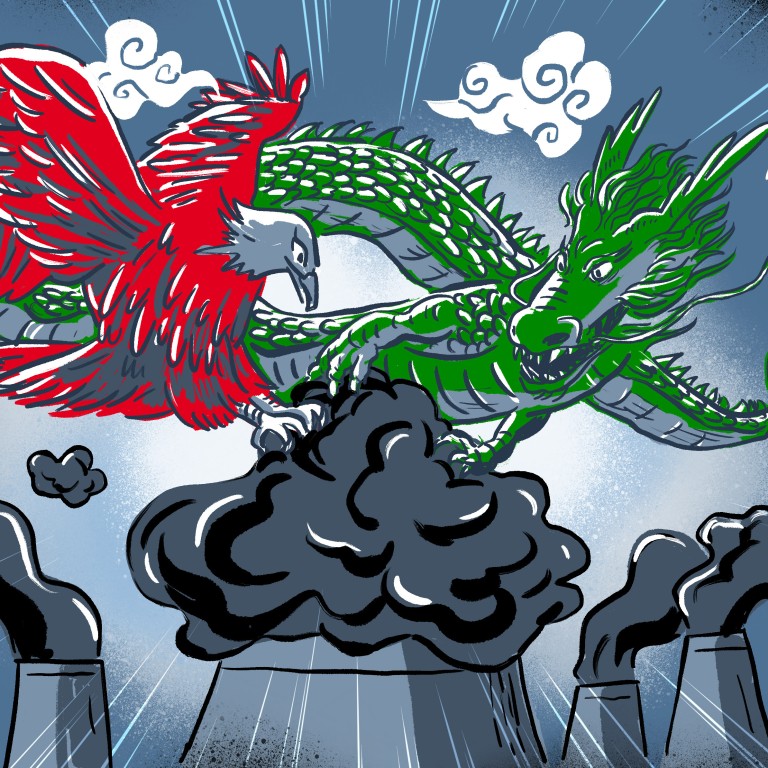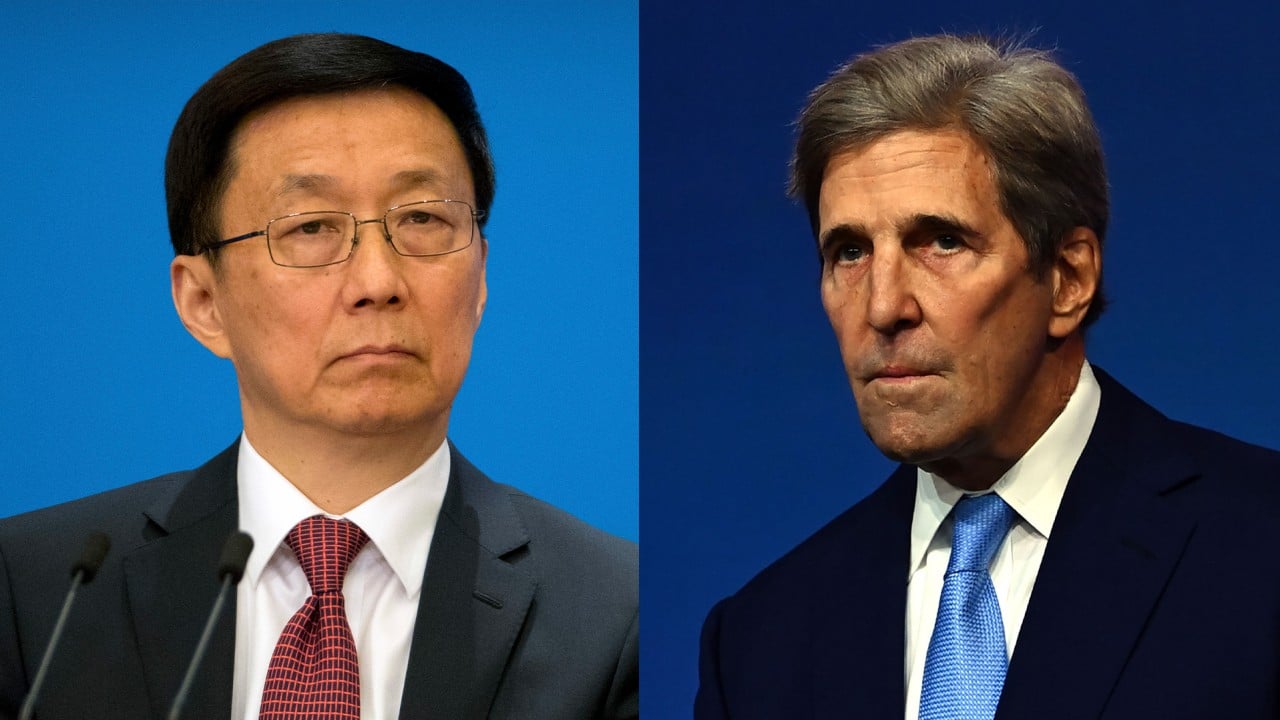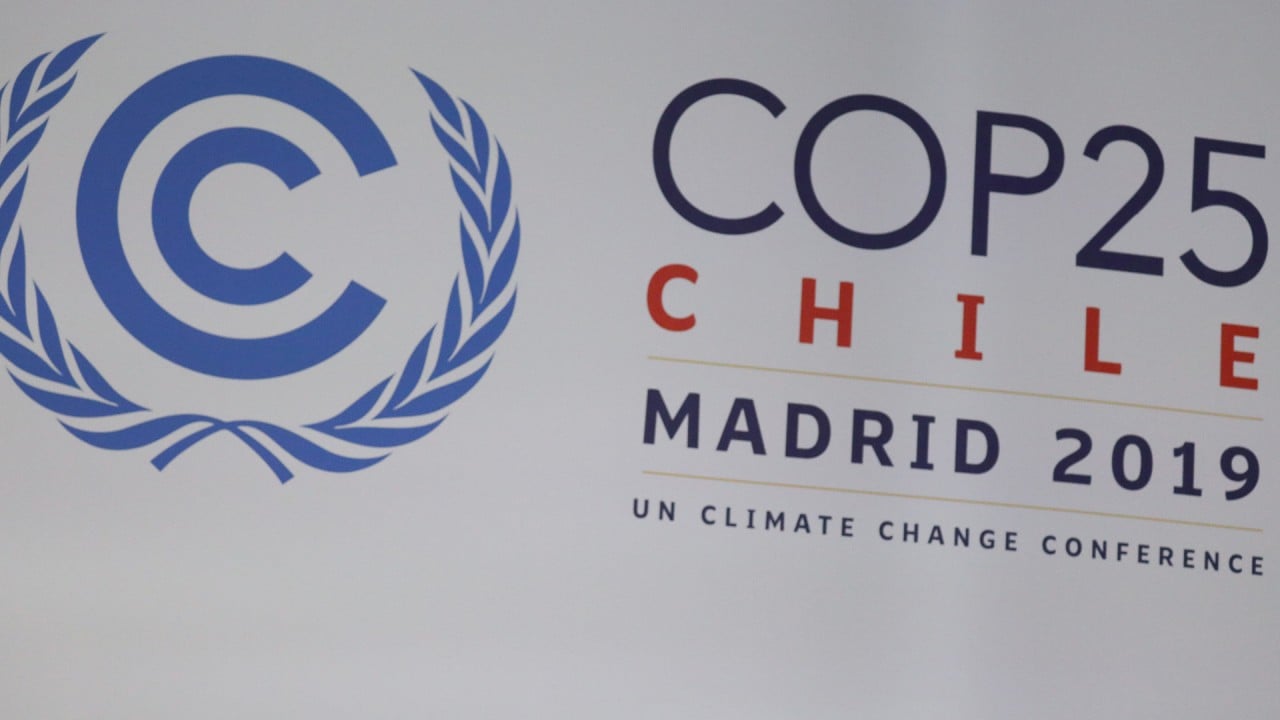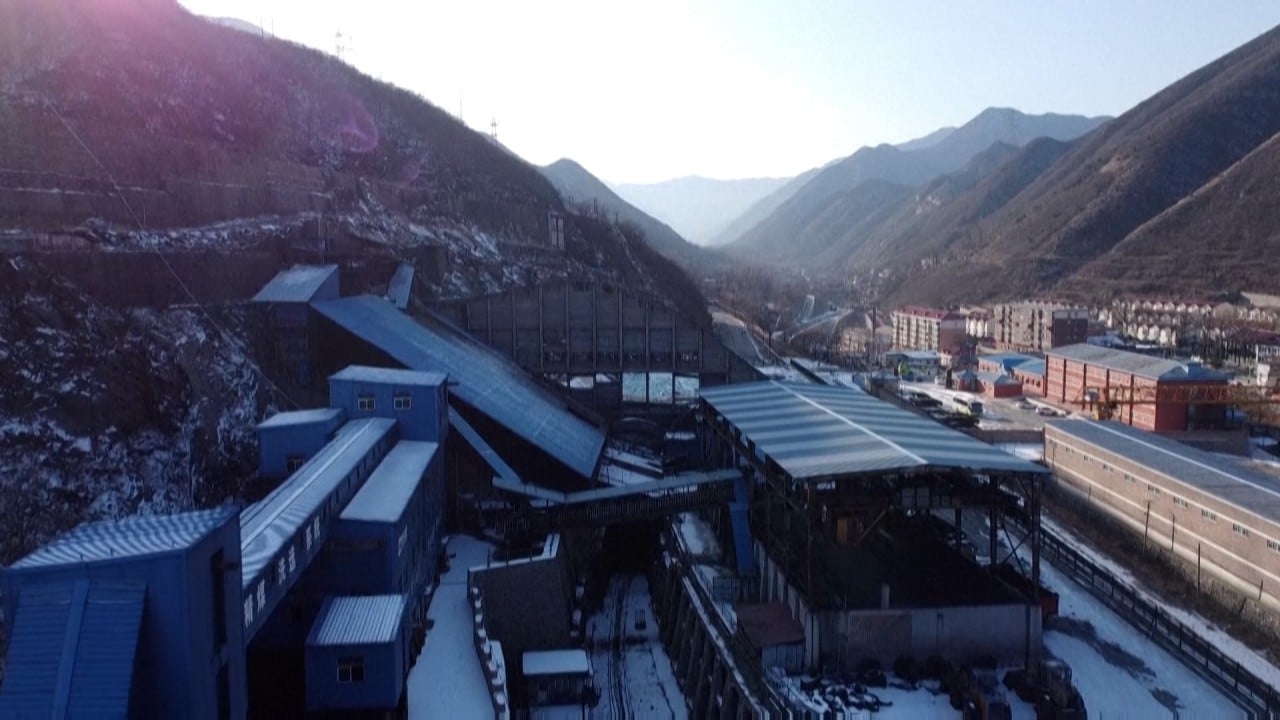
What can China bring to the climate change summit table?
- EU and US reportedly pressuring China to make its climate targets more aggressive, bringing the peak emissions target date forward
- China’s ambitions include hitting peak emissions and increasing non-fossil fuel energy share to around 25 per cent by 2030
On the eve of the US-led Leaders Summit on Climate, we take a look at China’s climate ambitions and what the West’s expectations are. This series by the South China Morning Post looks at what we can expect from Thursday’s meeting.
Foreign ministry spokesman Wang Wenbin said on Wednesday that China hoped the summit would give fresh impetus to the global fight against climate change.
“We hope that this summit can provide a platform conducive to the global response to the climate change challenge, effective implementation of the Paris Agreement and promotion of global climate governance and exchanges,” Wang said.
In particular, the two sides agreed to work together and aim for more substantial results at the year-end United Nations climate summit (COP26) to be held in Glasgow.
“Both countries look forward to the US-hosted Leaders Summit on Climate on April 22-23. They share the summit’s goal of raising global climate ambition on mitigation, adaptation and support on the road to COP26 in Glasgow,” the joint statement said.
“Both countries intend to develop by COP26 in Glasgow their respective long-term strategies aimed at carbon neutrality/net zero greenhouse gas emissions.”
In addition, the two sides vowed to “continue to discuss … concrete actions in the 2020s to reduce emissions” in line with the aims of the 2015 Paris climate accord, and take action in the near term to further contribute to addressing the climate crisis, including moving away from funding fossil fuel-based energy in developing countries.
China’s climate change journey
In the joint statement, the two envoys also called for further discussion about decarbonising industry and power, raising the share of renewable energy in the energy mix and creating low-carbon transport.
Experts said the fact the two sides had agreed to cooperate on climate change was more than just a silver lining amid strained bilateral ties, especially when Washington and Beijing have been at loggerheads on almost every other issue, from Taiwan, human rights and Xinjiang to issues relating to Hong Kong.
However, they said Beijing would need to further work out details of its climate ambitions and clarify its positions for building trust and cooperation with the US and other countries.
“The commitment [by Beijing] is a good start. It is a firm step towards cooperation,” said Li Shuo, senior global policy adviser for Greenpeace East Asia. “But it needs to have further details and substantive measures.”
Byford Tsang of E3G, a London-based climate change think tank, said Beijing was more likely to make new pledges in a multilateral venue, such as the UN General Assembly, to position itself as making a positive contribution to global governance.
“US-China tensions are still running high in areas outside of climate. Policymakers in Beijing will tread carefully in finding the right time to announce new climate policies to avoid the optics of caving to US diplomatic pressure,” Tsang said.
The responsibility of big countries has been a central theme of President Xi Jinping’s messages to world leaders for more than a year, including most recently when he delivered a keynote speech at the Boao Forum on Tuesday. He also emphasised that in a tri-party call with German Chancellor Angela Merkel and French President Emmanuel Macron last Friday.

But China is still under pressure from the international community to take further action to tackle the climate crisis. The European Union and the US are reportedly pressuring China to make its climate targets more aggressive, bringing the date for peak emissions forward to 2025 from 2030.
“The international community is expecting further actions from China on coal,” said Li of Greenpeace.
There was a clear gap between China’s long-term ambition to reach carbon neutrality before 2060 and the short-term targets for this decade, said Lauri Myllyvirta, lead analyst at the Helsinki-based Centre for Research on Energy and Clean Air.
“Xi Jinping apparently indicated to Merkel and Macron on the call last week that China intends to adjust the shorter-term targets. If this adjustment brings China’s emissions trends into alignment with the carbon neutrality goal, it would be a major step forward,” he said.
Tsang of E3G said China had pledged greater support for the move away from fossil fuel energy in developing countries and that would set expectations for China to invest more in green infrastructure for the developing world.
“To do that, China would need to stop financing coal-power projects abroad. With Japan and South Korea expected to pledge to stop coal finance overseas, pressure on China to revisit its fossil fuel investments beyond its borders will continue to increase,” he said.
Myllyvirta agreed and said the statement prepared during Kerry’s visit to Shanghai indicated that China would do something to increase financing for clean energy and/or cut back the financing of fossil fuels overseas.
“This would be a very important step to enable other countries to clean up their energy mix,” he said.
“Whether to announce new actions at the summit convened by President Biden or at another occasion is a symbolic issue – what really matters is China stepping up ambition, as the country’s emissions keep increasing.”
Explainer | China coal: why is it so important to the economy?
Yang Fuqiang, a veteran environment expert and a senior adviser in Beijing to the Natural Resources Defense Council, a US environmental group, said China might implement more detailed and substantial climate policies under its existing pledge, but he did not expect it would put forward more ambitious targets during climate talks this year.
“China pledged to peak emissions before 2030 and meet carbon neutrality by 2060 last September and it enhanced its ambition last December required by the Paris Agreement. It may take two to three years to sum up our experiences before we make new judgments,” he said.
“China can recentralise the authority to approve new coal-fired power plants from the provincial governments to the central government in the 14th five-year plan (2021-25) for the energy sector, and that can happen later this year,” he said, adding that the authority was delegated to the provinces in 2014.
“China can also cut the share of coal in its primary energy consumption to below 50 per cent by 2025 from 57 per cent in 2020,” he said. Beijing could, in principle, announce a moratorium of new coal-fired power plants domestically, Yang said.
Yang said China would help other countries in addition to striving to meet its own targets.
“As a major country, China is willing to cooperate with other countries – developed and developing ones – to shoulder its responsibilities as long as [the cooperation] is good for the climate,” he added.
Pan Jiahua, dean of the urban development and environmental studies institute at the Chinese Academy of Social Sciences, also said China would firmly implement its climate commitments both at home and on international cooperation.
“China is a friendly and responsible country. If the US can show the reciprocal and positive attitude, there’s nothing we cannot discuss,” Pan said.
China and the US are the world’s two largest emitters of carbon dioxide, accounting for 28 per cent and 15 per cent of global greenhouse gas emissions respectively. The two countries have also experienced opposition and cooperation on climate diplomacy.
China and the US had opposing stances before the Copenhagen negotiations in 2009. The summit was considered a failure because China, as well as other BASIC countries – which include Brazil, South Africa and India – refused to agree on a mandatory target for emission cuts.
From the Copenhagen negotiations to the Paris accord, China and the US cooperated more and in 2015 leaders from more than 200 countries promised to voluntarily cut emissions and limit the global temperature increase during in this century to 2 degrees Celsius above the preindustrial levels.
Barack Obama, the US president at the time, telephoned Xi to express his appreciation for the “important role China played in securing a historic climate agreement in Paris”.
In an article published in March, Zou Ji, president of Energy Foundation China, a non-governmental research group, said China-US climate diplomacy had turned a new page.
“In the future, the China-US climate diplomacy might enter into the third phase, which is to avoid ‘pointing fingers at each other’ and to share responsibilities and benefits,” he wrote.
“The challenges and risks of China-US climate relations will exist for a long time,” Zou said. He said the low-carbon sector might become a new competitive field in the China-US trade and investment relations.
“For example, the US may implement anti-dumping measures against China’s exports of new energy vehicles and renewable energy equipment.”
Byford Tsang agreed that a new era had dawned.
“Both China and the US have positioned climate as a top priority in their domestic and foreign policies. We are now seeing the beginning of a competition on global climate leadership,” Tsang said.
“We are likely to see the competitive elements between their bilateral relations also play out in the climate space – as they compete for market share, standard-setting and innovation on green technologies,” he said.
Pan Jiahua said competition and trade friction between China and the US were natural and unavoidable, but the two countries could work together on mutually shared targets.
“Because of national interests, ideology and geopolitics, all kinds of contradictions and conflicts exist but we can find common ground to work together,” he said.
Additional reporting by Jun Mai








